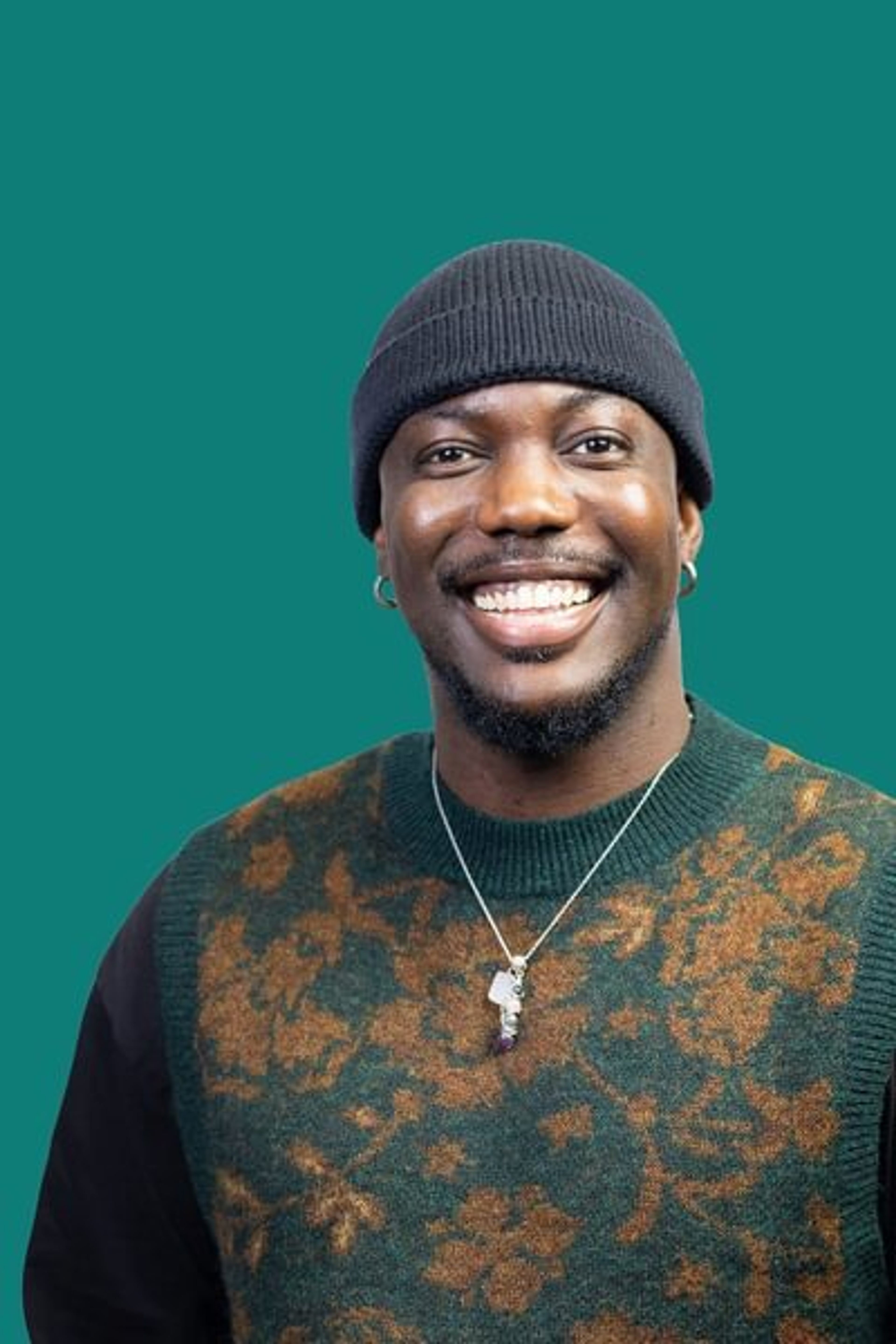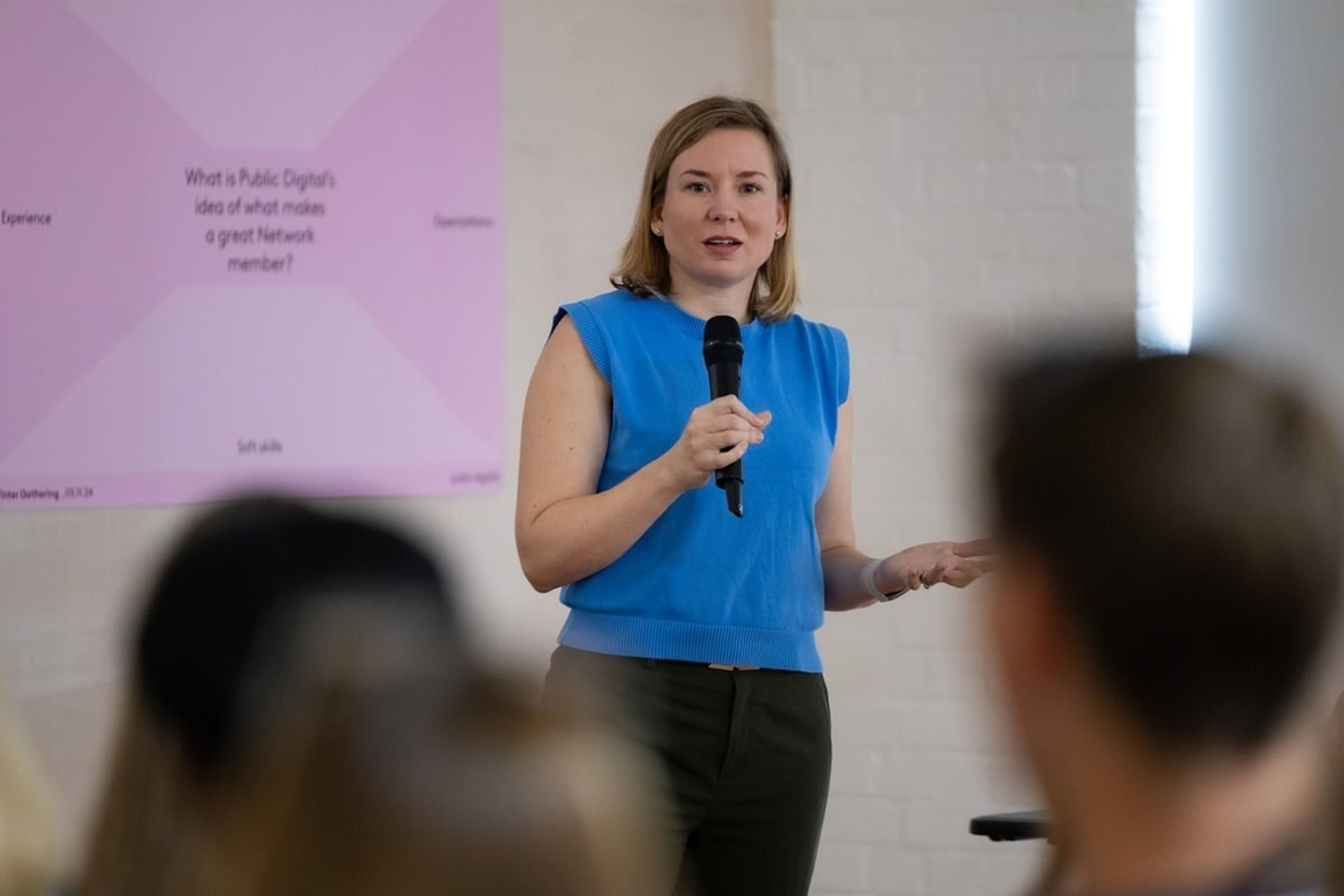Why Black History Month matters to me
Daniel is Public Digital’s Inclusive Hiring Lead, designing structures and processes that make our recruitment fairer, simpler, and more human.

Every year when Black History Month comes around, I find myself reflecting not just on the stories of the past, but on the spaces we hold today and how often I've been the only one in the room.
Being “the only one” isn’t new to me. It’s something I’ve learned to carry. That mix of fear, pride, pressure and sometimes quiet exhaustion. There’s a weight that comes with knowing you don’t just represent yourself - you represent possibility. You’re visible in a way others aren’t. Every word, every idea, every mistake can feel amplified.
But it’s an experience which has also given me perspective, resilience, and a deep sense of purpose. It’s taught me the power of visibility and that sometimes, simply showing up is the change.
This year’s Black History Month theme “Standing Firm in Power and Pride” really resonates with me because it’s not just about celebration. It’s about ownership. Standing firm, even when it’s uncomfortable. Holding your space, even when others don’t yet understand why you’re there.
I’ve realised that representation isn’t about tokenism, it’s about possibility. It’s about the quiet impact of someone seeing you and thinking: “Maybe I could do that too.”
Standing Firm in Power and Pride
I didn’t always see myself that way. I just wanted to do my work well, keep things moving, making small changes where I could. But over time, I realised that my presence was part of the change for others who look like and identify with me. I might be the first person who looked like them in a leadership meeting, or on an interview panel, or in a room where decisions are made.
That’s when I began to understand my role as a role model. Not because I asked for it, but because it mattered. Representation always does.
Reni Eddo-Lodge, in Why I’m No Longer Talking to White People About Race, talks about how silence, whether it’s down to fatigue, fear or indifference, protects systems of inequality. That idea sticks with me. Because in every room where I’ve been the only one, I’ve felt that tension between wanting peace and knowing silence serves no one.
So now I try to use my voice - not always loudly, but with intention. To call things out when they’re not right. To open the door wider for others. To stand firm in both pride and power, even when it would be easier to shrink back.
Intersectionality and allyship
But here’s the thing, representation alone isn’t enough.
Change doesn’t just come from the people breaking barriers. It also comes from those holding the doors open.
That’s where allyship and intersectionality come in. They’re not nice-to-haves. They are essential.
Allyship isn’t performative. It’s not a post, a badge, or a moment in the spotlight. It’s a quiet consistency. It’s being the person who speaks up when bias shows up in the room. It’s noticing who isn’t there and - most importantly - doing something about it. It’s recognising that progress isn’t about taking space, it’s about sharing it.
Intersectionality matters because none of us exist in a single story. Our experiences overlap through race, gender, class, disability, sexuality and faith to name a few. These intersections shape how we move through the world. Black women, Black queer people, Black disabled people - none of our experiences can be folded neatly into a single narrative.
Real inclusion means seeing and valuing the whole person, not just the parts that feel comfortable or familiar. When we talk about inclusion, we can’t only centre one experience. Real equity comes from understanding how systems of power overlap and how they can either exclude or uplift depending on who’s in the room and who’s listened to.
Shaping what comes next
So as we celebrate Black History Month, my ask is this: Don’t just post. Don’t just praise. Participate. Reflect. Learn. Act.
Black History Month isn’t just about remembering what’s been. It’s about shaping what’s next. And sometimes, that means being the first.
The first voice to challenge, the first face to represent, the first person to say, “This can be different.”
It’s scary at times, yes. But there always has to be a first.
So if you ever find yourself in that position, feeling out of place or unsure, remember this: someone has to do it.
Why not you?
Written by

Daniel Sintim
Inclusive Hiring Lead

